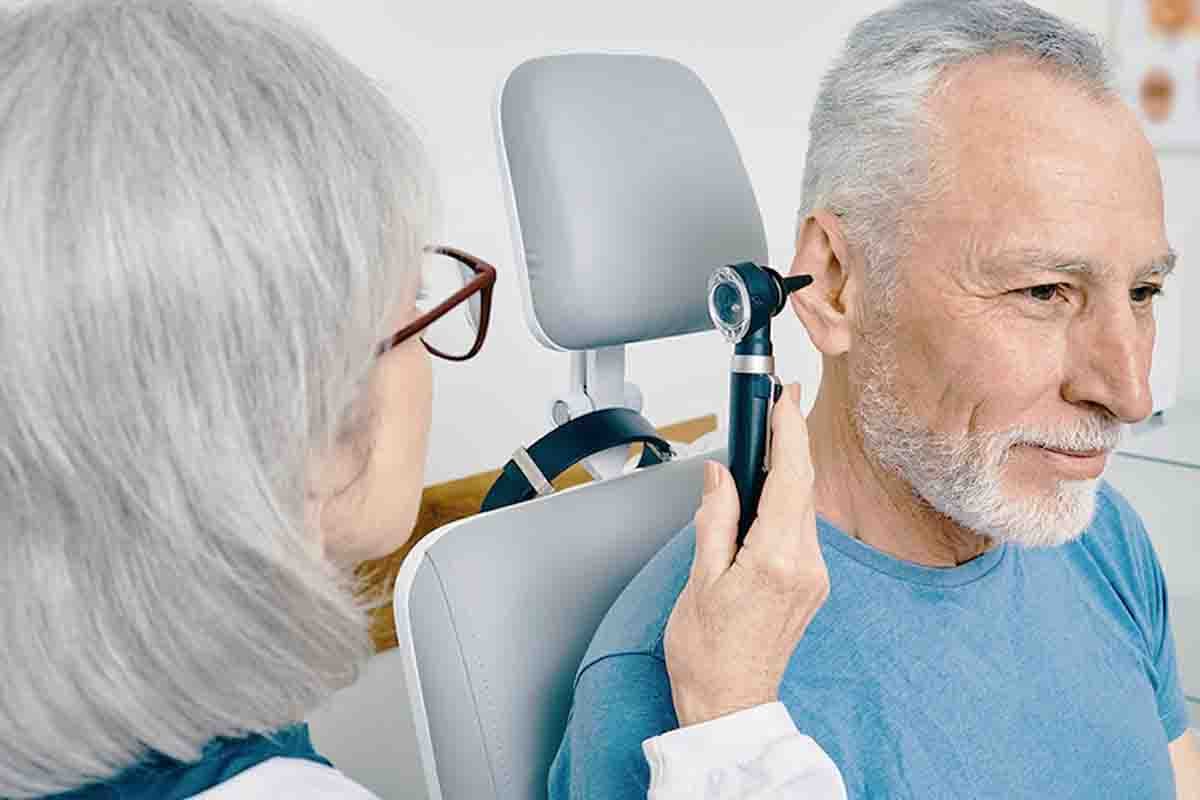
Barbra Streisand is a singer and actress with a career that spans over six decades. She has achieved success in multiple fields and amassed a huge fanbase.
Her success becomes even more astounding when we consider the hardships she had to deal with right from her childhood.
Barbra has been suffering from Tinnitus since her school days.
As a singer, she especially had to work with different sounds, which became extremely challenging with her Tinnitus and she had to work with an audiologist to help distinguish sounds with her condition.
Barbra's enlightening story highlights the importance of understanding Tinnitus sounds in order to identify and treat them with better accuracy.
Types of Tinnitus sounds
Many make an assumption that Tinnitus sounds are mostly just ringing in the ear.
That is, however, not true.
Tinnitus sounds can range from simple ringing in the ear to buzzing, clicking, humming, hissing or even roaring. They are usually classified as objective and subjective:

Objective Tinnitus sounds
Objective Tinnitus sounds emanate from the ear canal of the patient and are audible to other people near them. They are caused by noises produced in a structure near the ear, making it an objective source from which the sound is coming.
They can be heard by an outside observer as well. Many physicians term objective Tinnitus as somatosound.
Subjective Tinnitus sounds
Subjective Tinnitus sounds are only audible to the patient and not anyone around them. They are caused by abnormalities in the auditory pathway.
These sounds are usually devoid of any acoustic etiology. Physicians often use the term Tinnitus to mean subjective Tinnitus in general.
Examples of Tinnitus sounds
Tinnitus sounds can be anything from simple ringing, hissing, and crickets to loud roaring, screeching, sirens, and ocean waves. Many patients also repeat static, clicking, and even music as the sounds they hear.
Objective Tinnitus sounds are usually flow sounds of a blood vessel that may be malformed or constricted as well as throbbing, tapping, bubbling, etc. Subjective Tinnitus sounds are ringing, buzzing, and clicking.
Common causes of Tinnitus sounds
Tinnitus is usually caused by an underlying condition. Many experience these sounds from their early days while others acquire it independently due to injury to developing a condition. Here are the five most common causes of Tinnitus sounds:
Exposure to loud noises
Being exposed to loud noises for long periods of time or too frequently can have an adverse effect on the hearing of a person. It can cause damage to the sensitive parts of the ear, hearing loss, sensitivity to sound, and Tinnitus.
Noises that are over the volume of our ears are used to damage the nerves in the ear, making you susceptible to developing Tinnitus.
Aging
Age-related hearing loss is often associated with Tinnitus. Only 1% of patients under the age of 45 experience Tinnitus. However, over 12% of patients aged between 60 to 69 suffer from the condition.
As you grow old, the number of nerve fibers in your ear that function properly declines. This paves way for ear-related problems, such as hearing loss and Tinnitus.
Ear infections
Infections of the ear can also lead to Tinnitus. Due to ear infections, your ear canals will become blocked with the build-up of fluid, ear wax, dirt, or any other material. This blockage puts undue and unwanted pressure on the ear.
Tinnitus caused by ear infections is treatable and will go away once the underlying cause — the ear infection — is treated and cured.
Certain medications
Many medications are known to cause or worsen Tinnitus. The most common of these are nonsteroidal anti-inflammatory drugs (NSAIDs) such as Aspirin. Antibiotics, Tricyclic antidepressants, and cancer-related medicines are also shown to cause Tinnitus.
Usually, the higher the dosage you consume the worse your condition becomes. So, stopping the medication entirely will stop Tinnitus.
Underlying health conditions
There are many underlying health conditions that have been shown to cause or worsen Tinnitus. Conditions such as diabetes, migraine, anemia, autoimmune disorders as well as thyroid have all been linked with Tinnitus.
Hearing loss is directly related to Tinnitus but other ear-related diseases such as Meniere's disease can prove to be early indicators of Tinnitus.
Diagnostic evaluation of Tinnitus sounds
If you are experiencing discomfort in your ear due to hearing unwanted sounds, you will need to get a diagnostic evaluation with a practitioner. It will help you find out if you have Tinnitus or not and what kind of Tinnitus sounds you are experiencing.

Given below is a brief about the diagnostic evaluation of Tinnitus sounds:
Medical history
Your doctor will begin by asking you about your medical history. This will delve both into the general history as well as issues relating to your ear.
As Tinnitus is caused by other underlying problems, this is an extremely important step that helps your doctor pinpoint the exact cause of your issue.
Physical examination
The physical exam for Tinnitus includes your doctor checking your head and neck for identification of causes for Tinnitus. They will inspect the external canal and tympanic membrane for signs of cerumen impaction, perforation, or infection.
The cranial nerves will be checked for brain damage or hearing loss. Your doctor will perform Auscultation over your head and neck (listening to the sounds of the internal organs). They will perform the tuning fork tests to check sensorineural or conductive hearing loss.
Audiological evaluation
The next step is the audiological evaluation, commonly known as the hearing exam. You will have to sit in a soundproof room and we are headphones. The headphones will transmit specific sounds into one of your ears at a time.
You will have to indicate to your doctor when you hear the sound transmitted via the headphones. The doctor will match your results against what is considered normal for your age. For a deeper evaluation, the doctor may ask you to move your eyes, clench your jaw or move your limbs.
Imaging tests
The last step in your diagnostic evaluation will be imaging tests such as CT scans and MRIs. This is an optional step, meaning you might not have to go through with them if not needed. However, most doctors will insist on an imaging test to be sure about your diagnosis.
The imaging test you undergo will depend on the suspected cause of your Tinnitus. For example, a CT scan will be preferable to check neck-related problems and MRI would be opted for brain-related issues.
Treatment options for Tinnitus sounds
Depending on the type and severity of your Tinnitus, your doctor will suggest treatment options to help eradicate the underlying cause of the condition or reduce the severity of the symptoms. Here are some of the most commonly opted-for treatment options for Tinnitus sounds:
Management of underlying health conditions
Underlying diseases, such as ear infections and conditions, such as diabetes are known to cause Tinnitus. Hence, treating or managing them will help you treat your Tinnitus.
But how does a diagnostic evaluation help?
It helps you pinpoint the exact cause of Tinnitus. Treating the underlying cause with medication or treatment will help you get relief from Tinnitus. For example, managing diabetes with medication and lifestyle changes will soothe Tinnitus if that is the underlying cause of it.
Hearing aids
Hearing loss and Tinnitus are closely related. Those who suffer from Tinnitus also suffer from hearing loss. Hearing aids while helpful in combating hearing loss also help you with Tinnitus by making it less noticeable.
Hearing aids facilitate normal hearing by amplifying the sounds around you. This might include making the sounds louder or increasing the volume of the soft sound in your surroundings. Further, it enables you to hear things the way you're supposed to, subsiding the unwanted Tinnitus sounds.
Tinnitus Retraining Therapy (TRT)
TRT is a treatment option that helps you cope with Tinnitus through several coping mechanisms. You will have to work with hearing professionals who will gain extensive information about your condition.
Based on this information, you will be given devices that you can wear behind your ears. They will generate broad-band noises that will fade out the Tinnitus or at least distract you from the. Moreover, they include psychological therapy to teach the patient to ignore the sounds.
Cognitive behavioral therapy
Cognitive behavioral therapy works on managing your reaction to Tinnitus instead of curing the condition. The therapy sessions work like any other therapy session — weekly in nature, and continue for around six to 10 weeks.
Each session focuses on a particular topic related to Tinnitus and how you can deal with it. This can range from learning the use of ear devices and stress management on a daily basis to cognitive restructuring and sleep analysis.
Sound therapy
Sound therapy uses stimulation of sound to make your brain reorganize its context to alter your perception and reaction to your own Tinnitus. A sound masking device is an excellent option to manage Tinnitus with the use of sound therapy.
Further sound therapy helps reduce the symptoms and suppress Tinnitus in patients over time. In the long run, it can also eliminate the condition completely. It’s widely accepted by patients as it is easy to apply and accessible as well as non-invasive.
Improve the quality of life with a sound masking device
Wellcare has developed a cutting-edge masking device — Naturecare Sound Relaxation to improve the quality of life of Tinnitus patients by relieving stress. Relaxation will help you combat Tinnitus sounds with relaxing sounds, such as ocean waves or white noise.

Lifestyle modifications to reduce Tinnitus sounds
In conjunction with treatments, there are a few lifestyle changes that can tremendously help you manage your Tinnitus as well as improve your health and quality of life in the long run:
Avoiding loud noises — Loud noises can worsen your Tinnitus. Avoid places that may have loud noises entirely, such as factories and places that run heavy machinery. If you need to be in a loud environment, protect your ears.
Effectively managing stress — Stress management not only helps reduce the symptoms of Tinnitus but also makes your body more receptive to treatment. Relaxation therapy, sound therapy, and cognitive behavioral therapy are some common stress management options.
Maintaining a regular exercise regime — General exercises are an excellent option to help relax your Tinnitus. You can also choose exercises specially focussed on relieving Tinnitus, such as muscle relaxation, deep breathing, and guided imagery.
Maintaining a healthy diet — A healthy and proportionate diet helps you manage Tinnitus with ease. You also need to reduce the intake of salts and sugar and replace them with potassium-rich foods, apricots, papaya, yogurt, and spinach to ease Tinnitus.
Coping strategies for Tinnitus sounds
Patients are often advised coping techniques to combat Tinnitus sounds along with medication and treatment options. Some common coping strategies you can try are:
Support groups — Surrounding yourself with people who suffer from the same condition or are working toward it can help ease many anxieties you may have about it. Get in touch with the American Tinnitus Association to find your support network.
Relaxation techniques — Relaxation techniques such as sound therapy, music therapy, deep breathing, and dancing can help you relax and deal with your condition better.
Distraction techniques — Having soothing sounds in the background, trigger point massage, and activities such as dancing and craft can help you distract from Tinnitus.
Fight Tinnitus by staying aware and informed
Tinnitus sounds range from simple ringing in the ear to loud roaring, which can cause severe discomfort to the patient. It’s important to diagnose the sounds and their causes correctly to be able to treat them with accuracy.
Today, we have many promising treatment options to reduce and treat Tinnitus. Researchers are experiencing major breakthroughs that promise even better cures in the near future.
If you’re experiencing loud noises in your ear for a continued period of time, it’s important to seek medical attention to identify, distinguish and treat the Tinnitus sounds with precision.
Try the Naturecare Sound Relaxation today to build a relaxing environment around you.


.png?width=512&name=united-kingdom%20(1).png)

